Making Desktop Apps With Electron
Building applications using JavaScript Hydrahack Birmingham • 13 Mar 2017
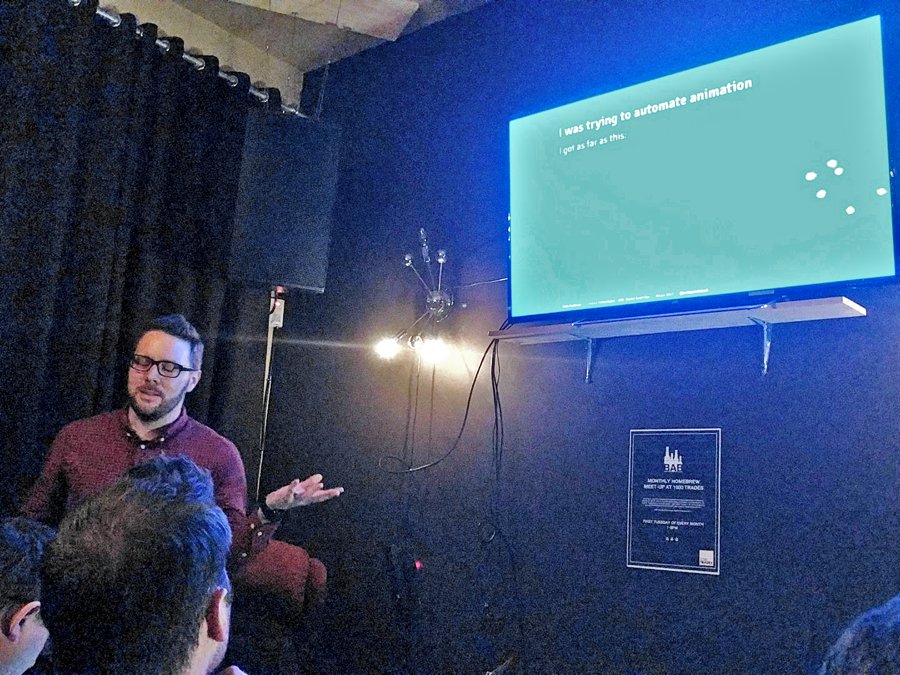
If you've not already heard of Electron, it's effectively a bundled up browser which has access to the wider filesystem than a regular browser. Electron lets you write an app for multiple desktop platforms in HTML, CSS and JavaScript. — keep reading
Why You Should Quit Your Job
Lessons learned in job satisfaction Ignite Brum • 31 May 2016
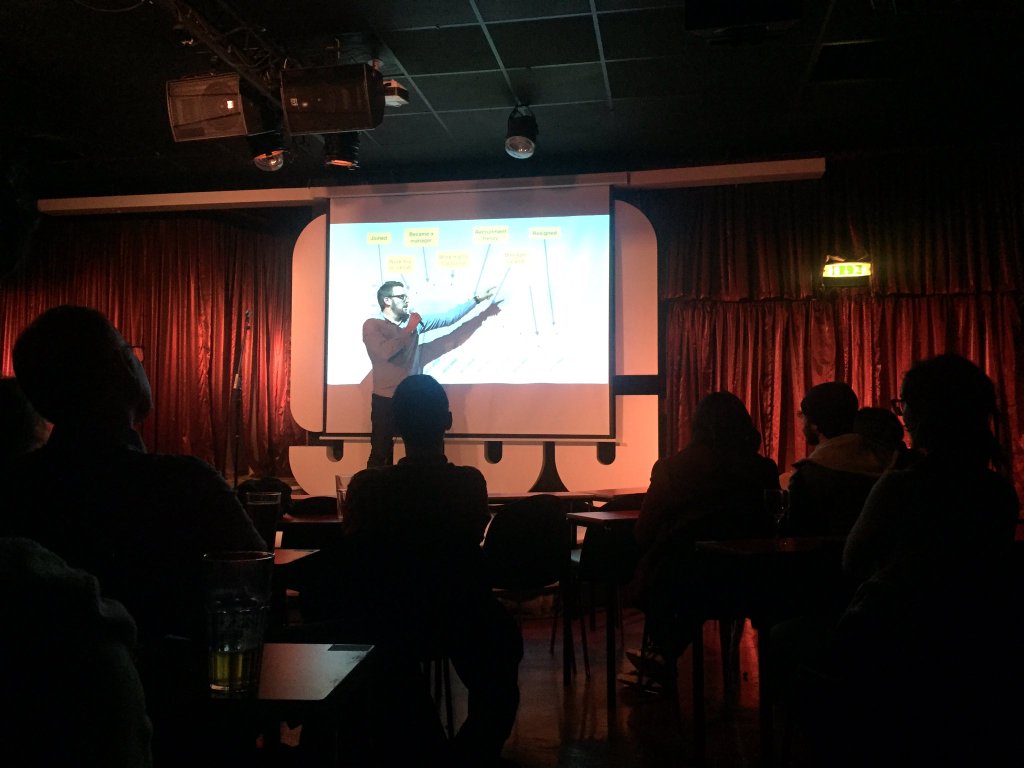
From 2010-2015 I worked at the Guardian newspaper as a client-side web developer. I started working there at the age of 23 and it was my dream job. I want to talk about realising when you're unhappy at work and what to do about it when it happens to you. — keep reading
The Blossoming of the Web
New technologies and digital journalism Hacks & Hackers Birmingham • 23 Nov 2015
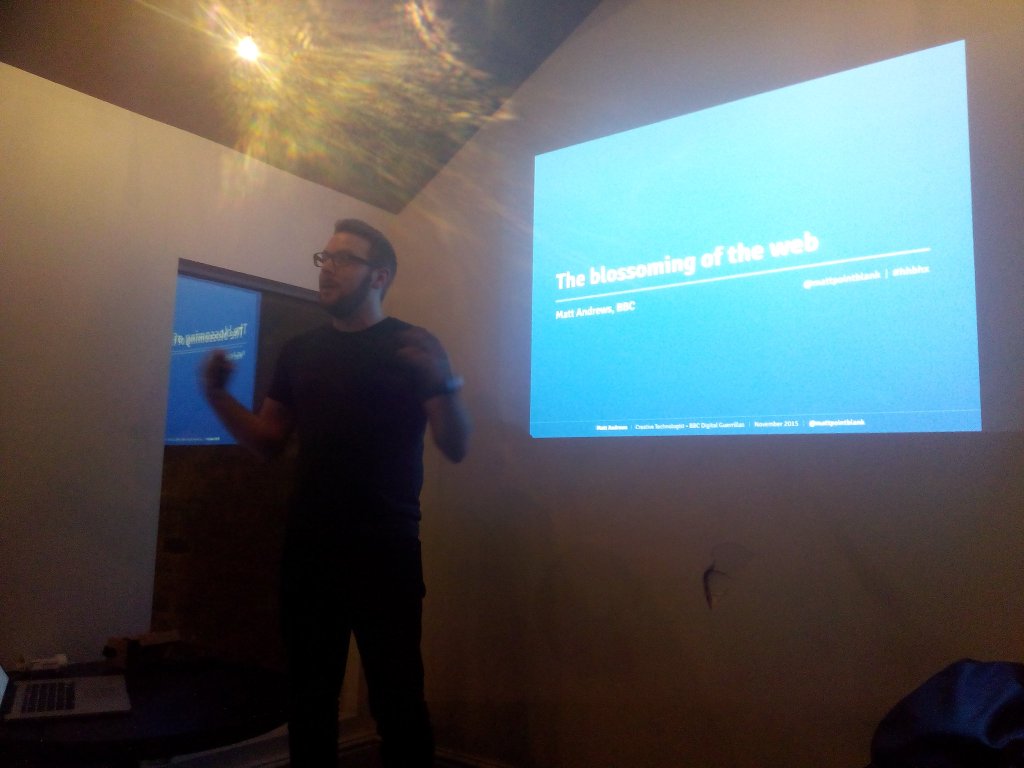
This talk is mixed bag of new(ish) developments in technology which intersect with journalism. I'm going to talk through six examples of things that I think are interesting that you should care about if you're a hack, a hacker, or that semi-mythical unicorn who claims to be both. — keep reading
Where Is Everybody?
Fermi's Paradox Guardian Ignite • 24 Jan 2015

This talk, much indebted to the fantastic article by Wait But Why, offers an introduction to the question: where is everyone? If the universe is full of potential life-supporting planets, why haven't we met anyone? Let's find out... in five minutes. — keep reading
The Democratic People's Republic of Korea
AKA the Hermit Kingdom Guardian Ignite • 05 Nov 2014

This was a talk for an internal Guardian event where I spoke about the much-discussed "hermit kingdom" of North Korea, and shone a little light on the background, the history, the culture... and the snacks. — keep reading
Online "newspapers" and changing reading & writing habits
How digital journalism changes how we read and write online The Royal College of Art, London • 04 Nov 2014
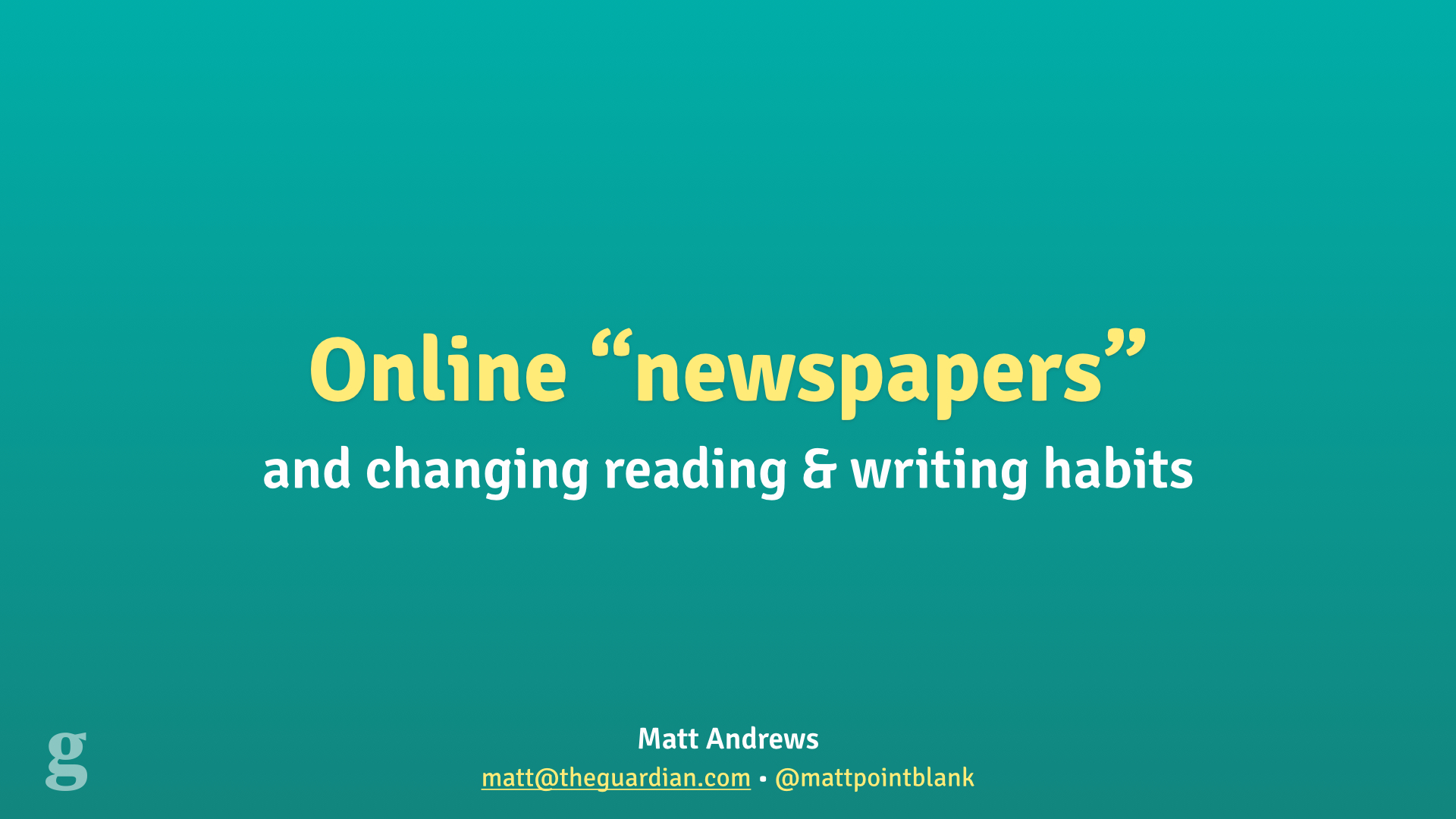
I gave a talk and held a group discussion for MA students studying Critical Writing in Art and Design, covering ideas developed by the Guardian and others which change the way we consume and produce news on the internet. — keep reading
Moderation in Moderation
Working with online communities Mozilla Festival 2014, London • 25 Oct 2014
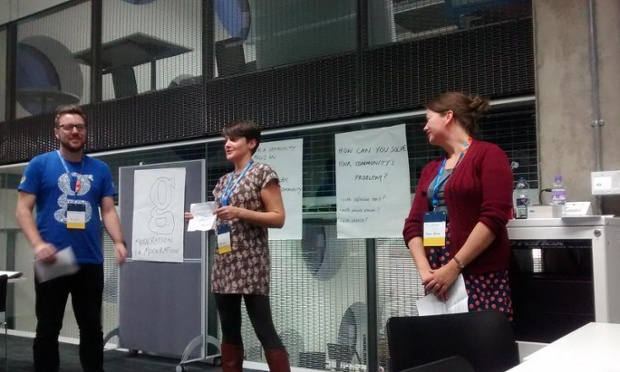
I proposed and facilitated an hour-long session at the annual Mozilla Festival on their Source Code for Journalism track. Along with some Guardian colleagues we helped a few dozen attendees work out the challenges their online communities faced work together to solve them. — keep reading
How to brew beer
Making extract beer at home Guardian Ignite • 29 Apr 2014

A quick five minute introduction to the union of water, hops, malted barley and yeast - better known as beer. Here I run through my homebrew process, introduce the basic components and even offer a few samples at the end. — keep reading
Surviving the multi-device news challenge
How the Guardian uses APIs and open data Hacks & Hackers Berlin • 22 Jan 2014

The Guardian gets traffic from 322 unique browser versions across 6236 unique device types, by 82m unique people every month. This is the multi-device challenge: anyone producing content for the web is facing it, and it's getting harder. — keep reading
Responsive design at the Guardian (Canvas Conf)
Why you should make your website future-friendly – right now CanvasConf 2013, Birmingham • 09 Oct 2013
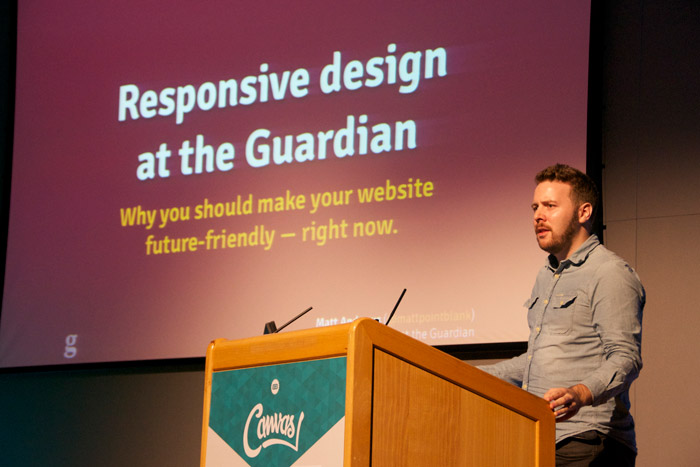
It's the most talked-about web development technique of the past few years and it's officially reached the mainstream: responsive web design is being used by huge content sites like the Boston Globe, the BBC, Channel 4, and now the Guardian. — keep reading
Responsive design at the Guardian (Port 80)
How I learned to stop worrying and love the mobile web Port80 Conference 2013, Newport • 09 May 2013
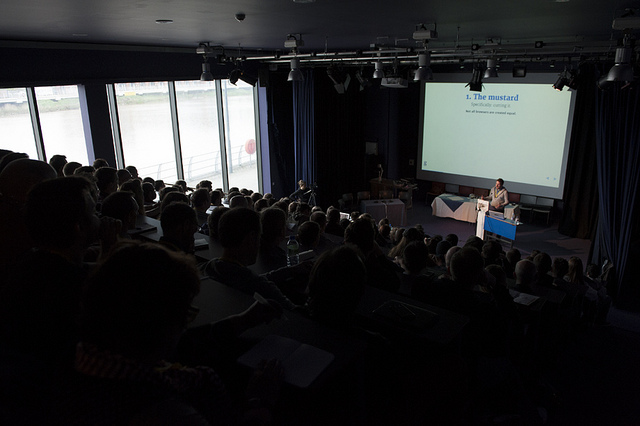
We need to be ready for anything and build for a web platform which constantly evolves and transforms. Being future-friendly won't get us all of the way there, but it means that when the unexpected becomes the norm, it's not going to take us by surprise. — keep reading